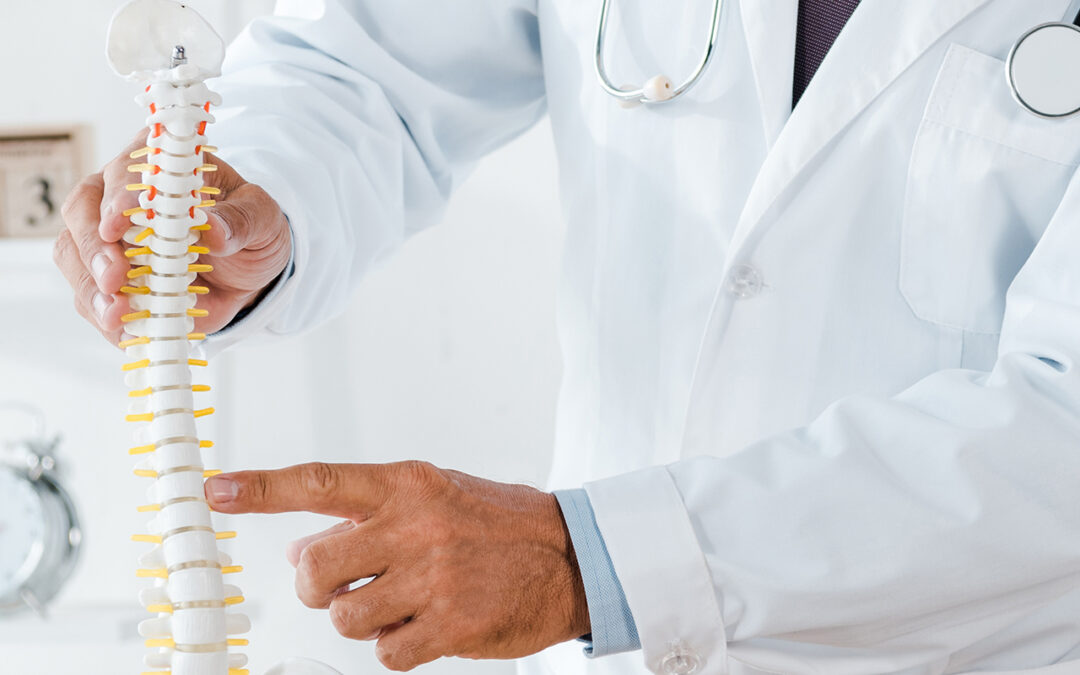By: Dr. Ahmad Elakil
Insight Hospital and Medical Center Chicago – Herniated discs are one of the leading causes of neck, arm, back, and leg pain, impacting millions of people each year. In my previous blogs, I reviewed the common symptoms of disc herniation and how we diagnose and treat this condition at Insight. However, you are probably wondering if there are natural ways to treat a herniated disc without surgery. In the final blog in this series on disc herniation, I will discuss some natural treatment options that may be effective and also review how protecting the spine plays an important role in managing symptoms and preventing future injuries.
Can Disc Herniation Heal Naturally?
Patients often wonder if their herniated disc can heal on its own. In many cases, pain will begin to fade gradually over time without requiring medical intervention. However, if pain and stiffness subsides, it doesn’t necessarily mean that the herniated disc has healed naturally. Even after symptoms have resolved, the herniated disc remains ruptured and can cause complications at any time. As a spine surgeon, I believe that in order to understand how the symptoms of disc herniation can heal gradually on their own, it is important to know how the pain emerges.
A herniated disc can occur because of the rupturing of the annulus, which is the outer layer of the disc. It can also be the result of damage to the endplate of the vertebral body, which causes the gel-like nucleus pulposus to ooze out of the disc. When this occurs, it can compress or pinch areas of the nerve sac and trigger pain. The nucleus pulposus is also filled with inflammatory proteins, which leads to sciatica, a terribly agonizing inflammation within the sciatic nerve root located in the back.
Fortunately, a herniated disc can heal on its own or be an asymptomatic condition. The following are three primary methods for naturally alleviating disc herniation symptoms.
Immune Response
The immune response process can cause the body to identify the herniated portion of the disc, consider it a foreign material, and attack the disc. As the immune response occurs, the body will reduce the size of the herniated fragment naturally.
Water Absorption
The absorption of water is another natural process that can heal the symptoms of a herniated disc. The herniated fragment of the disc contains water. With time, this water will naturally absorb back into the body. As the water is absorbed, the herniated piece begins to shrink on its own without surgical intervention.
Innate Disc Mechanisms
The natural mechanics of the disc can also promote healing and alleviate pain. Many experts believe that extension exercises allow the symptomatic part of the disc to move inward and away from the spinal nerves. When this occurs, it aids in eliminating lower back and neck pain caused by disc herniation.
These three natural processes can be very effective at reducing pain and irritation. However, it is important to remember that the disc will still remain herniated because natural bodily responses cannot heal herniation. The symptoms tend to alleviate due to the size reduction of the herniated fragment and the reduction of inflammation near the nerve root.
Symptoms of a herniated disc will vary from patient to patient, and managing these symptoms plays an effective role in the overall healing process. Many MRI research studies have revealed countless patients with large disc herniation with no pain whatsoever.
The ideal route is to identify treatments and rehabilitation therapies that will reduce acute pain and defuse symptoms so future complications can be prevented. For those who are suffering from recurring symptoms and heightened disability due to disc herniation, surgical intervention should be considered. As a patient, it is important to avoid being overly anxious about healing a herniated disc – especially if symptoms have been eliminated. The priority must be eliminating pain. If you’re not feeling pain, you have nothing to worry about.

Protecting Your Spine
Protecting your spine and managing your symptoms is crucial. Even if your condition continues to improve with treatment and no medical intervention, always remember that disc herniation can happen again. I strongly advise my patients to protect their spine to prevent the risk of further disc herniation. Correcting your posture by sitting straight and standing upright is essential. If work or home chores require standing for long periods, consider using a footrest, stool, or box to alleviate pressure on your back.
It is also important to avoid lifting heavy objects and bending too much. Squatting the knees to pick up heavy objects can put the spine at risk of injuries. Bending from the waist also puts excessive pressure on the lower back and spine.
Maintaining a healthy weight is essential for those suffering from lower back pain or disc herniation. Extra pounds cause back strain and make the spine vulnerable to injury. I advise my patients against smoking, which can harden the arteries and damage discs located in the spine. I also recommend a healthy regimen of exercise and physical exertion. Instead of over-exerting yourself and aggravating the pain, consider exploring the benefits of muscle-relaxing stretches and yoga routines. Yoga has proven extremely beneficial for patients suffering from cervical disc herniation. However, you should consult an expert instead of experimenting at home.
If you think you are suffering from symptoms of disc herniation, spinal pain, or painful sensations traveling down your back and legs, it is important to consult an expert immediately. Patients often neglect treatment and rely on over-the-counter medications to counter pain and experience temporary relief. To request an appointment with Dr. Ahmad Elakil or to learn more about the services offered at Insight Hospital & Medical Center in Chicago, please call (312) 567-2273 or click here to find out about next day appointments.
References
https://www.spine-health.com/conditions/herniated-disc/surgery-options-a-herniated-disc
https://www.hopkinsmedicine.org/health/conditions-and-diseases/lumbar-disc-disease-herniated-disc
https://www.spine-health.com/video/video-can-herniated-discs-heal-their-own
https://www.medicinenet.com/herniated_disc/article.htm
https://www.webmd.com/pain-management/treatments-for-herniated-disk

